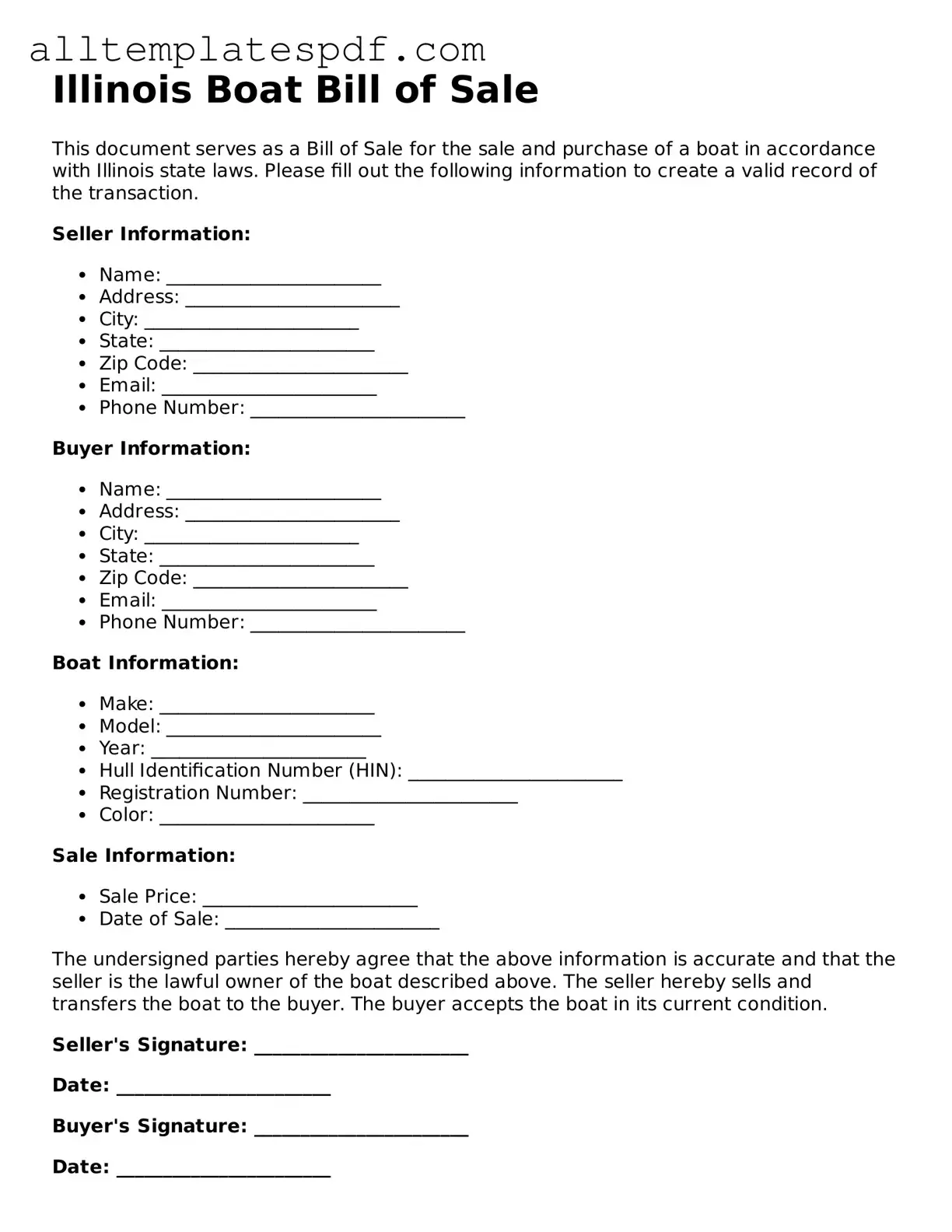Filling out the Illinois Boat Bill of Sale form can seem straightforward, but many people make common mistakes that can lead to complications later on. One frequent error is not including all necessary information. Buyers and sellers must provide their names, addresses, and signatures. Omitting any of this information can cause delays in the transfer process.
Another mistake is failing to accurately describe the boat. The form requires details such as the make, model, year, and hull identification number (HIN). Missing or incorrect information can create confusion and may even lead to legal issues down the line.
Some individuals forget to indicate the sale price. This detail is crucial, as it establishes the value of the transaction for tax purposes. Leaving this blank can result in complications when registering the boat or when tax authorities review the sale.
Additionally, people often overlook the date of the sale. This date is important for record-keeping and can affect warranties or claims related to the boat. Without a clear date, both parties may face difficulties in the future.
Another common error is not having the form notarized when required. While not all transactions need notarization, certain situations do. If the form requires it and is not notarized, the sale may not be legally binding.
Some sellers mistakenly believe that a verbal agreement is enough. However, a written bill of sale is essential for protecting both parties. Relying solely on verbal agreements can lead to misunderstandings and disputes later on.
People also sometimes forget to keep copies of the completed form. It’s important for both the buyer and seller to retain a copy for their records. Without a copy, it can be challenging to prove the terms of the sale if questions arise in the future.
Another issue arises when individuals use outdated forms. Laws and requirements can change, so it’s essential to ensure that the most current version of the Illinois Boat Bill of Sale is used. Using an old form can lead to rejection by state authorities.
Some people neglect to check for accuracy after filling out the form. Simple typos or incorrect details can create problems. Taking the time to review the form before submission can save a lot of hassle later.
Lastly, many forget to understand the local regulations that might apply. Different counties or municipalities may have specific requirements regarding boat sales. It’s wise to check local laws to avoid any surprises.

